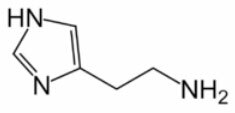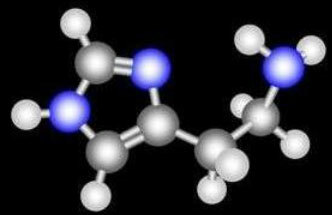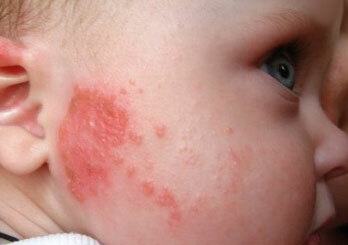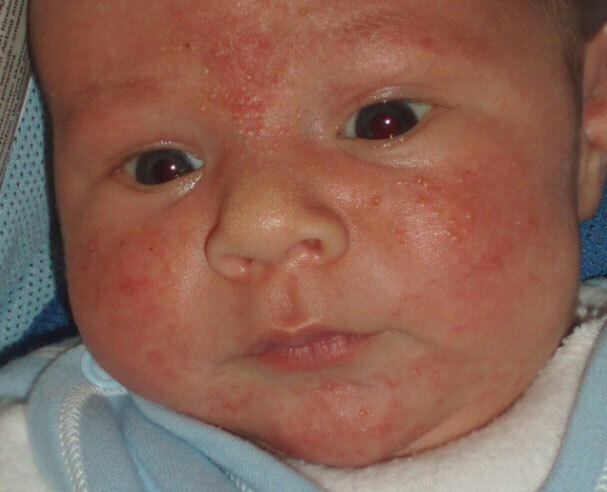The formation of histamine in the human body occurs due to the synthesis of histidine - an amino acid, one of the components of the protein.
Inactive histamine is found in some organs( intestines, lungs, skin) and tissues.
Its release occurs in histiocytes( special cells).
Activation and release of histamine is due to:
- exposure;
- immune malfunction;
- taking some medications;
- stress;
- burns;
- injury.
In addition to synthesized( its own) substance, histamine can be obtained in nutritional products:
- spirits;
- some varieties of fish;
- sausages;
- cheeses.
Excess histamine can be obtained from long-term stored foods.
Especially there are many of them at insufficiently low temperatures.
Strawberries and eggs can stimulate the production of internal( endogenous) histamine.
Active histamine, penetrated into the bloodstream of a person, has a powerful and rapid effect on certain systems and organs.
Histamine has the following( main) effects: 
- a large amount of histamine in the blood causes anaphylactic shock with specific symptoms( sudden pressure drop, vomiting, unconsciousness, convulsive phenomena);
- increase in the permeability of small and large blood vessels, resulting in headache, pressure drop, nodular( papular) rash, skin hyperemia, swelling of the respiratory system;increase the production of secretion of mucus and digestive juices in the nasal passages and bronchi;
- stress hormone adrenaline, secreted from the adrenal gland, promotes increased heart rate and increased blood pressure;
- involuntary spasm of smooth muscles in the intestines and bronchi, accompanied by respiratory disorders, diarrhea, stomach pain.
Allergic reactions lead histamine to a special role in all possible external manifestations.
Any such reaction occurs when antibodies and antigens interact.
Antigen is known to be a substance that, at least once, was inside the body and caused an increase in its sensitivity.
Antibodies( immunoglobulins) can only react with a specific antigen.
The following, the antigens that have arrived in the body, are attacked with antibodies, with the sole purpose of completely neutralizing them.
As a result of this attack, we get immune complexes of antigens and antibodies.
These complexes settle on mast cells.
Then, histamine passes into the active state, leaving the blood from the granules( degranulation of mast cells).
Histamine may participate in processes similar to allergies, but not as such( the "antigen-antibody" process does not participate in them).
Histamine affects specific receptors located on the cell surface.
Simplified, histamine molecules can be compared to keys that unlock some locks - receptors.
There are three subgroups of histamine receptors that cause a definite physiological response:
- H1 receptors;
- H2 receptors;
- H3 receptors.
Allergies, in the tissues of the body, there is an increased content of histamine, which indicates the genetic( hereditary) causes of hypersensitivity. 
Histamine blockers, histamine antagonists, histamine receptor blockers, histamine blockers are medicinal substances that help to eliminate the physiological effects of histamine by blocking receptor cells that are sensitive to them.
Indications for the use of histamine:
- experimental research and diagnostic methods;
- allergic reactions;
- peripheral nervous system pain;
- rheumatism;
- polyarthritis.
However, most medical interventions are directed against unwanted effects caused by histamine itself.
Take care of yourself.
Be Healthy!
 Histamine is a biologically active component that takes part in the regulation of various body functions.
Histamine is a biologically active component that takes part in the regulation of various body functions.



